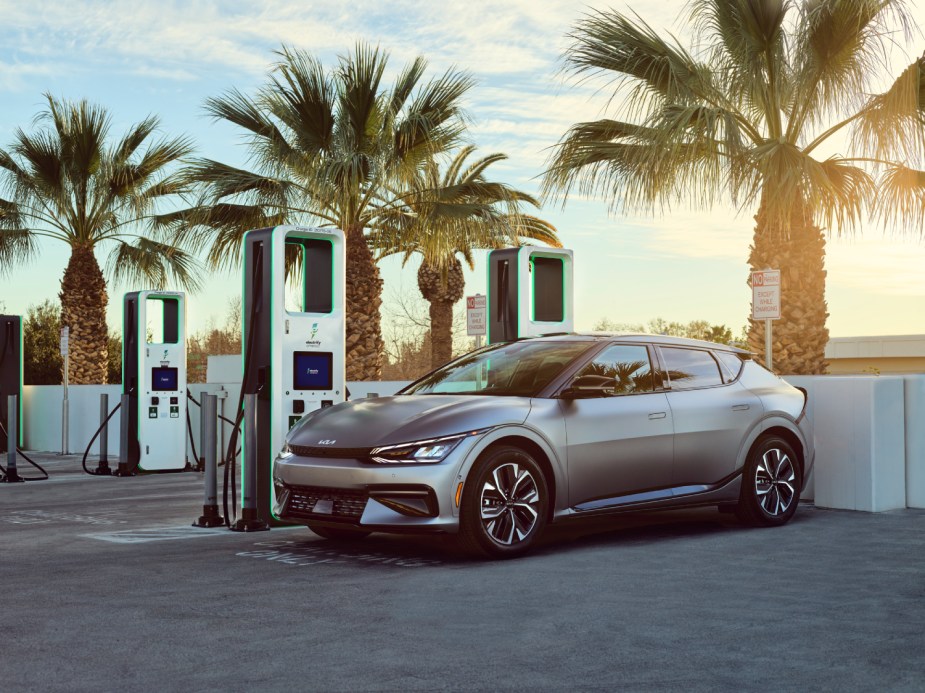We are in the dog days of summer. Heat wave after heat wave is battering our country from toe to tip. With temps breaking records from Tucson to Tucumcari, we have all been running every air conditioner we can get our hands on. As I conclude my week with the Kia EV6 GT Line, I’m reflecting on the good and bad of life with an EV. So, how much does air conditioning affect your EV’s range?
The 2024 Chevrolet Blazer EV SS in Radiant Red | Chevrolet
Does air conditioning hurt EV range?
EVs are cool. After spending a week with the Kia EV6 GT, I am a bit smitten. However, the illusion quickly shattered for me when I realized how difficult it was to find consistent and reliable charging stations. This stress was exacerbated because, during this heat wave, we had the air conditioning running full blast. Before I knew what hit me, the Kia had lost a significant amount of range.
To double check, I turned off the AC, and the predicted range shot back up. This presented a very stressful balance of maintaining a comfortable temperature while also struggling to find a charging station that was either working or available.
According to Gear and Cylinder, a study done by AAA found that, on average, across a few different makes/models, EV ranges fell by 17% when driven in 95-degree conditions when using the AC. Apparently, Tesla disputed this claim, stating that Teslas dropped only about 1% in 95-degree conditions.
Car and Driver did a similar study during the winter in Michigan. The article describes putting a Tesla model 3 to the test, specifically in cold weather with the heater on. According to the article, using the seat warmers and heater on full blast dropped the range over 60 miles compared to the same distance with no HVAC running. This uses 35% more energy and significantly drops the range.
Why does using the AC make my EV range drop?
 The new Kia EV6 electric SUV charges at a charging station | Kia
The new Kia EV6 electric SUV charges at a charging station | Kia
Warm temperatures are a double whammy for EV drivers. First of all, high heat makes batteries work worse right off the bat. Secondly, every function in EVs draws from the only source of power, the battery.
On a gas vehicle, the AC compressor is driven by a belt and is turned on and off using an electric clutch. On an electric vehicle, the compressor still spins, but it is electrically driven off the high-voltage batteries. While heat draws even more power, the AC significantly impacts your EV’s range.
How do you stay cool in your EV during the summer?
*{padding:0;margin:0;overflow:hidden}html,body{height:100%}img,span{position:absolute;width:100%;top:0;bottom:0;margin:auto}span{height:1.5em;text-align:center;font:48px/1.5 sans-serif;color:white;text-shadow:0 0 0.5em black}

